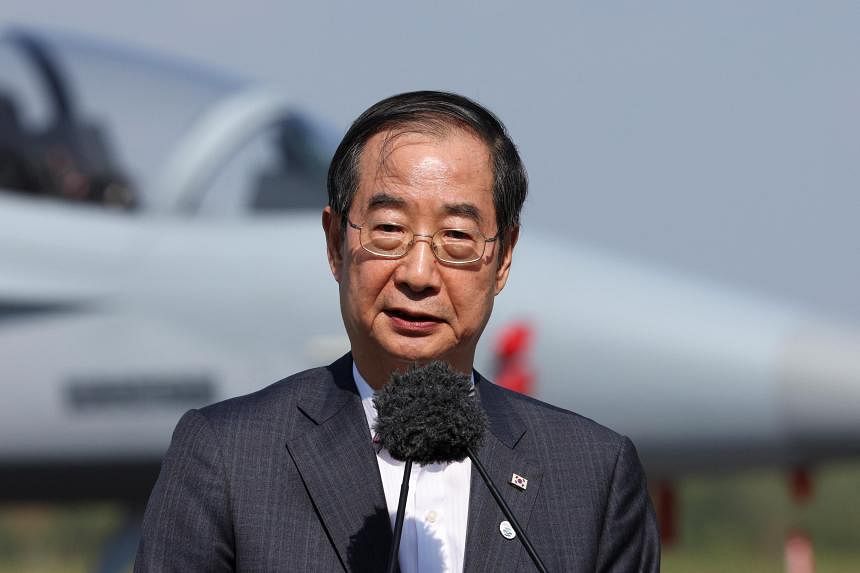SEOUL - South Korea, which boasts of being a world leader in digital government strategy and services, underwent a system failure of an unprecedented scale that lasted nearly two days until Nov 18.
The outage forced the government to operate manually while civil services were paused.
The Ministry of the Interior and Safety, which oversees the nation’s e-government systems, said on Nov 19 that operations should be able to return to normal on Nov 20.
The ministry added that a “glitch in the network” was believed to be responsible for the malfunction.
Vice-Interior Minister Ko Ki-dong told a briefing on Nov 19, at the end of inspections held over two days, that “all municipal government services appear to have been normalised”.
The main opposition Democratic Party of Korea on Nov 19 called on President Yoon Suk-yeol to apologise to the people over the failure of the government’s online systems, and to remove the minister in charge – Minister of the Interior and Safety Lee Sang-min – from his post.
“While the systems were paralysed, the government told South Koreans to simply wait. The President must immediately apologise to the public for the incompetence of his administration and the Interior Minister needs to be fired immediately,” the party said in a statement.
Beginning with reforms for digitalisation launched under former president Roh Moo-hyun’s administration, the South Korean government has evolved to offer paperless services to its citizens since 2017.
In a 2019 digital government index, South Korea ranked first among the Organisation for Economic Cooperation and Development member states, and came in third for the seventh consecutive time in the United Nations’ e-government survey in 2022.
Upgrading the digitalisation of government services and administration networks has been one of Mr Yoon’s major policy agendas, with a possible plan to export the related technologies.
The Democratic Party said the “fiasco” ahead of last weekend undermined the administration’s ambition to be a “top digital leader worldwide”.
Before the systems could restart temporarily on Nov 18, central and municipal government operations had to rely on pre-digitalisation paperwork processes for a full day.
Prime Minister Han Duck-soo issued an apology in an address on Nov 18 for the “inconvenience and confusion caused to South Korean people”, as a result of the outage affecting the government’s online services.
“What we witnessed goes to show the extent of the chaos that can arise from an imperfect digital system,” he said in the address.
“Our authorities are at work to determine what caused it, and how we can prevent it from happening again.”
Mr Lee, who was out of the country to meet United States Secretary of Homeland Security Alejandro Mayorkas, cut short his trip and returned to Seoul on Nov 18 amid the emergency. The minister set up an emergency task force over the weekend, comprising officials from other ministries, to oversee recovery efforts and coordinate responses.
Most operations had resumed for the most part by Nov 18, with the multi-ministry task force still at work to return services fully back to normal and assessing the damage.
Government 24, a platform for assisting citizen-government interactions, resumed service that morning.
Since then, the platform has processed 240,000 citizen complaints and requests such as issuance of resident registration certificates and other documents, according to the Interior Ministry.
Internal portals used by government workers, called the Saeol system, were operating at a “satisfactory level” by the afternoon on Nov 18, the ministry said.
The South Korean authorities have not yet been able to narrow down the exact cause of the outage.
Shortly after the system breakdown became known on Nov 17, the National Intelligence Service said it was looking into “various possibilities, including cyber attacks” and deploying its experts to “identify the cause of the failure and recover the system”. No updates have been made since. THE KOREA HERALD/ASIA NEWS NETWORK

